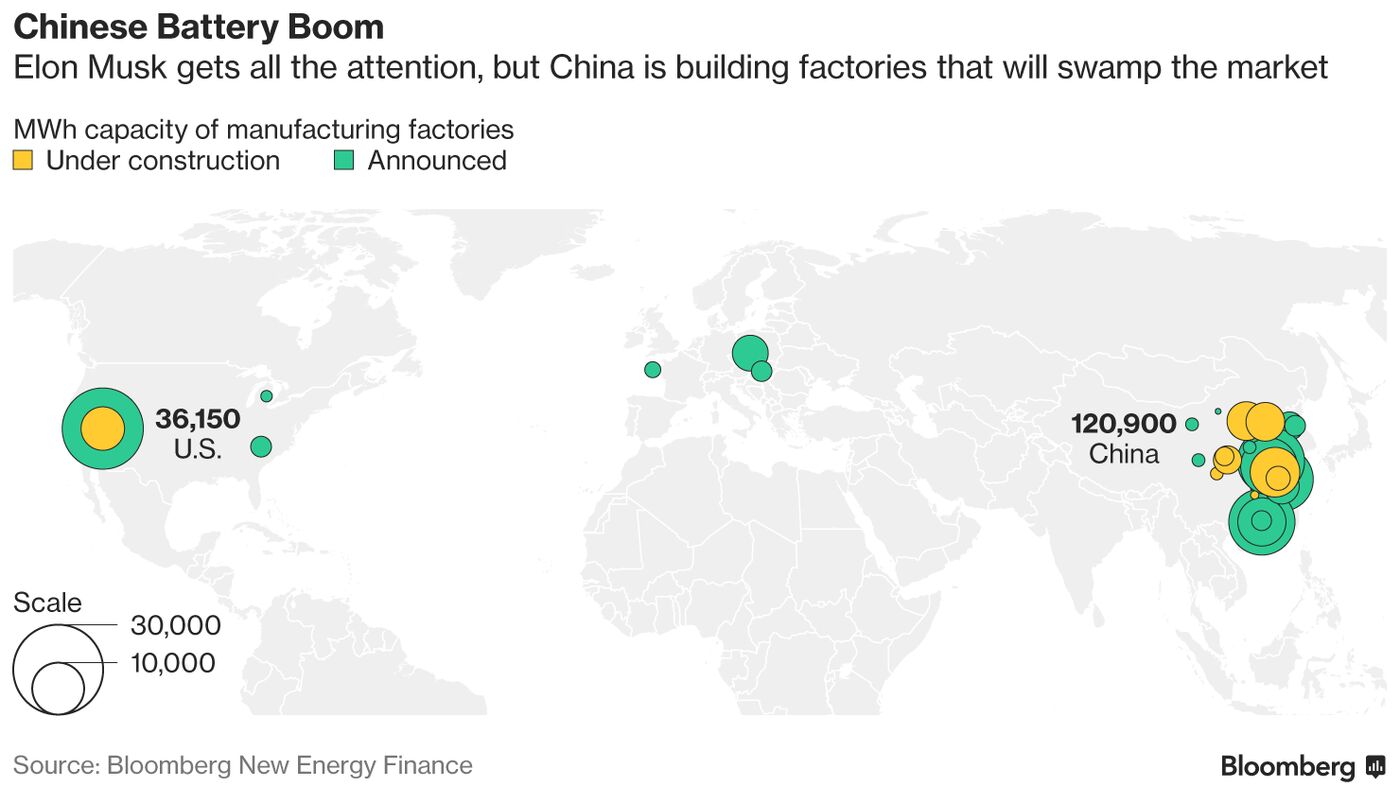Fisticuffs Over the Route to a Clean-Energy Future
Source: NY Times
Could the entire American economy run on renewable energy alone?
This may seem like an irrelevant question, given that both the White House and Congress are controlled by a party that rejects the scientific consensus about human-driven climate change. But the proposition that it could, long a dream of an environmental movement as wary of nuclear energy as it is of fossil fuels, has been gaining ground among policy makers committed to reducing the nation’s carbon footprint. Democrats in both the United States Senate and in the California Assembly have proposed legislation this year calling for a full transition to renewable energy sources.
They are relying on what looks like a watertight scholarly analysis to support their call: the work of a prominent energy systems engineer from Stanford University, Mark Z. Jacobson. With three co-authors, he published a widely heralded article two years ago asserting that it would be eminently feasible to power the American economy by midcentury almost entirely with energy from the wind, the sun and water. What’s more, it would be cheaper than running it on fossil fuels.
And yet the proposition is hardly as solid as Professor Jacobson asserts.
In a long-awaited article published this week in The Proceedings of the National Academy of Sciences — the same journal in which Professor Jacobson’s manifesto appeared — a group of 21 prominent scholars, including physicists and engineers, climate scientists and sociologists, took a fine comb to the Jacobson paper and dismantled its conclusions bit by bit.
Read more: https://www.nytimes.com/2017/06/20/business/energy-environment/renewable-energy-national-academy-matt-jacobson.html?&moduleDetail=section-news-1&action=click&contentCollection=Economy®ion=Footer&module=MoreInSection&version=WhatsNext&contentID=WhatsNext&pgtype=article
It's a good entry towards thinking big to clean up our environment.
Even if we can't see how to achieve 100% renewable energy right now, we need to be moving in that direction.
The storage technology is the key to making it all work, we need to push research into better battery technology.....
Burfman................
bucolic_frolic
(43,128 posts)We can do this, we're at 10% now
Price will drive that number, every bit as much as the fossil industries try to suppress it
kristopher
(29,798 posts)...so much as a genuine disagreement based on different views of what affects future development.
Here is a snip from coverage by the trade journal of the International Electrical and Electronic Engineers (IEEE Spectrum)
"...while both sides claim to be objectively weighing the energy options, the arguments and backgrounds of the protagonists belie well-informed affinities for various energy sources (and informed biases against others). As sociologists of science would say, their choice of data and their reading of it reflects hunches, values, and priorities.
Consider Clack’s coauthor Ken Caldeira, a climate scientist at the Carnegie Institution for Science. Caldeira's press release broadcasting their critique argues that removing carbon dioxide from the U.S. power supply is a massive job demanding the biggest tool box possible: “When you call a plumber to fix a leak, you want her to arrive with a full toolbox and not leave most of her tools at home," says Caldeira.
The same document then abandons this technology-agnostic tone to call out nuclear energy and carbon capture as technologies that “solving the climate problem will depend on.” And Caldeira has appealed for deploying a new generation of nuclear reactors, which he and other nuclear boosters such as former NASA scientist Jim Hansen say are needed because renewables “cannot scale up fast enough.”
They could be right. Then again, expert sources they cite, such as the International Energy Agency, have consistently underestimated renewable energy growth. And identical scale-up critiques have also been well argued against nuclear energy and carbon capture and storage (CCS).
Jacobson makes some powerful arguments for walking away from those technologies in his PNAS papers. Nuclear liabilities cited by Jacobson include the threat of future Fukushima-like disasters, nuclear weapons proliferation facilitated by large-scale uranium enrichment, and the financial risks such as those that recently bankrupted Westinghouse. And, as he notes in his rebuttal, the International Panel on Climate Change has determined there is “robust evidence” and “high agreement” among experts validating these nuclear risks...."
http://spectrum.ieee.org/energywise/energy/renewables/can-the-us-grid-work-with-100-renewables
bucolic_frolic
(43,128 posts)because the oil companies run the world
kristopher
(29,798 posts)Both groups agree 100% on the goal, which is "hard decarbonization"; that's a state where all energy paths through the economy are decarbonized. That means even though they disagree on the specific path, all parties are working to do whatever it takes to achieve that goal.
Matthew28
(1,797 posts)is now low enough that capitalism will move it forward. The republicans will have to use dirty tricks.
NickB79
(19,233 posts)Just because we still don't have a feasible pathway to get to 100% by 2050 doesn't mean we can't hit 60-70% instead.
It's still better than doing nothing as the planet burns. Even if we're unable to save, say, the coastal cities, this would slow warming enough to move people and infrastructure in time to prevent a full-on social collapse into anarchy (think Somalia).
kristopher
(29,798 posts)Kind of Related
China Is About to Bury Elon Musk in Batteries
Factories are adding enough capacity to power the equivalent of nearly 1.5 million Model S vehicles

https://www.bloomberg.com/news/articles/2017-06-28/china-is-about-to-bury-elon-musk-in-batteries